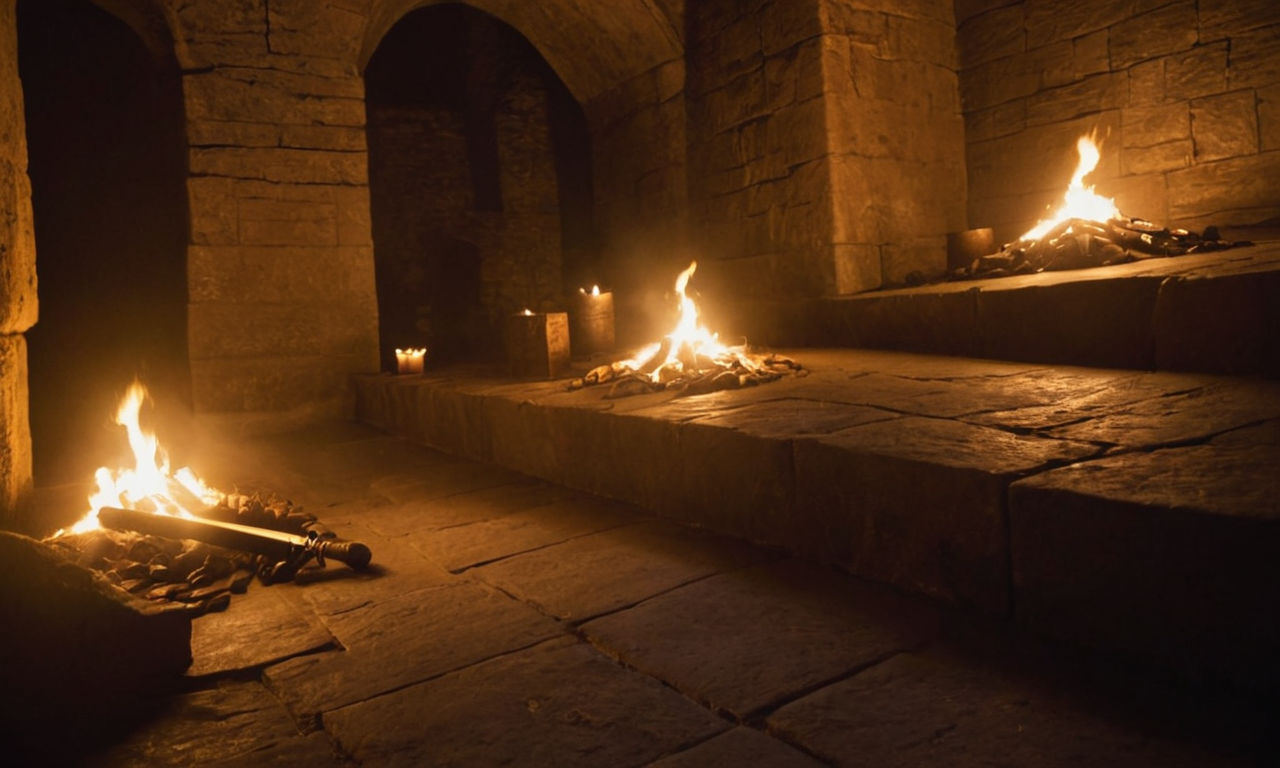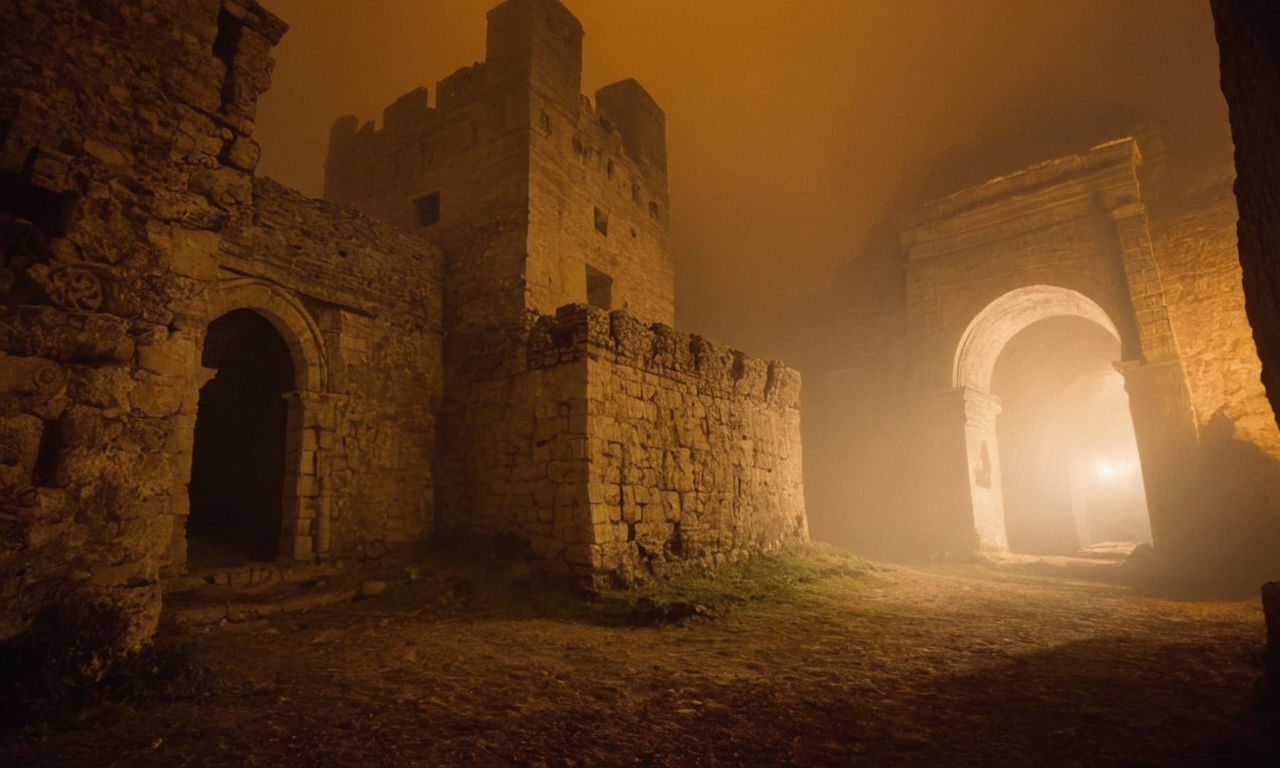Introduction
Nioh and Dark Souls stand as titans in the realm of action RPGs, captivating players with their challenging gameplay, intricate worlds, and deep lore. These two games have become synonymous with the Souls-like genre, known for their punishing difficulty and rewarding gameplay experience. Both Nioh and Dark Souls have amassed a dedicated following of gamers who relish the adrenaline-pumping thrill of overcoming seemingly insurmountable odds. Let's embark on a journey to unravel the mystique of these iconic titles and explore what sets them apart in the gaming landscape.
Souls-like games have made a significant impact on the gaming industry, ushering in a new era of hardcore gameplay that prioritizes skill, patience, and perseverance. Nioh and Dark Souls have contributed to the rise of this subgenre, drawing in players with their unforgiving challenges, intricate level design, and deep combat mechanics. As we delve into the comparison between Nioh and Dark Souls, we'll uncover the essence of what makes these games both formidable and captivating.
Similarities Between Nioh and Dark Souls
Nioh and Dark Souls share a multitude of elements that define the Souls-like genre, creating a challenging yet immersive gaming experience for players. Both games feature interconnected worlds filled with hidden paths, shortcuts, and formidable enemies that lurk around every corner. The sense of exploration and discovery is paramount in both titles, rewarding players who dare to venture off the beaten path.
Core gameplay mechanics such as stamina management, precise timing in combat, and strategic decision-making are prevalent in both Nioh and Dark Souls. Players must master the art of dodging, blocking, and attacking with precision to overcome the various adversaries that stand in their way. The unforgiving nature of the combat in these games adds a layer of intensity and satisfaction, as each victory is hard-earned and immensely gratifying.
The overarching themes explored in Nioh and Dark Souls delve into the concepts of redemption, perseverance, and the cyclical nature of life and death. Both games present a grim and foreboding world where humanity teeters on the brink of darkness, offering players a narrative backdrop that is as compelling as it is haunting. The deep lore and intricate storytelling in Nioh and Dark Souls elevate the player experience, immersing them in a rich tapestry of history, myth, and legend.
Core Elements of Souls-like Games:
Interconnected worlds filled with hidden paths and secrets.
Emphasis on precise combat mechanics and strategic decision-making.
Themes of redemption, perseverance, and the cycle of life and death.
Combat Mechanics
The combat systems in Nioh and Dark Souls are pillars of gameplay excellence, offering players a diverse array of weapons, skills, and strategies to overcome their foes. Nioh introduces a more fast-paced combat style, allowing players to switch between stances to adapt to different enemy types and situations. The variety of weapons, ranging from swords and spears to axes and kusarigamas, provides players with a wide range of options to tailor their playstyle.
In contrast, Dark Souls emphasizes a slower, methodical approach to combat, where players must carefully manage their stamina and timing to outmaneuver and outlast their opponents. The weight of armor and weapons plays a crucial role in determining movement speed and combat effectiveness, adding a layer of depth to the strategic elements of combat. Enemy encounters in Dark Souls are often designed to test the player's patience and skill, requiring a keen understanding of attack patterns and vulnerable spots.

The impact of difficulty on combat strategies is pronounced in both Nioh and Dark Souls, shaping the way players approach encounters and adapt their playstyle. The punishing nature of the games instills a sense of tension and urgency in every battle, pushing players to hone their reflexes, timing, and decision-making skills. Overcoming the challenges presented by formidable bosses and relentless foes is a test of determination and skill, rewarding players with a sense of accomplishment like no other.
Key Combat Features:
Nioh offers fast-paced combat with stance-switching mechanics.
Dark Souls emphasizes slower, methodical combat with stamina management.
Difficulty in combat shapes player strategies and decision-making processes.
Level Design
When exploring the realm of Nioh and Dark Souls, one cannot disregard the significance of level design in shaping the player experience. These two Souls-like games take distinct approaches in crafting their worlds, each contributing uniquely to the overall gameplay immersion.
Interconnected World vs. Mission-Based Structure
Dark Souls is known for its seamless and interconnected world design, where players can navigate through intricate pathways that loop back on themselves, creating a sense of cohesion and discovery. Players often find themselves unlocking shortcuts that lead back to familiar areas, promoting a deep exploration of the interconnected map.
On the other hand, Nioh opts for a mission-based structure, where individual levels are distinct and separate from each other. Each mission presents a different challenge, providing a more segmented approach to gameplay progression compared to the continuous world exploration of Dark Souls.
Environmental Storytelling and Shortcuts
Both games excel in environmental storytelling, using level design to convey narratives without overtly relying on exposition. Dark Souls is renowned for its cryptic storytelling through environmental cues, item placements, and enemy placements, creating a rich tapestry of lore for dedicated players to decipher.
Similarly, Nioh integrates environmental storytelling by incorporating Japanese folklore and historical elements into its level design. The environments in Nioh are not just backdrops but also play a crucial role in immersing players in the world's mythology.
Shortcuts are a common feature in both games, allowing players to unlock quick access routes or bypass challenging sections after uncovering hidden pathways. These shortcuts not only facilitate gameplay convenience but also promote a sense of interconnectedness within the game world.

Boss Battles
The epic encounters with formidable bosses are a hallmark of the Souls-like genre, and both Nioh and Dark Souls deliver intense and memorable boss battles that test the player's skill, patience, and adaptability.
Significance of Boss Battles
Boss battles in these games serve as significant milestones that punctuate the player's progression. They are not merely combat challenges but also narrative beats that often reveal more about the game world, its inhabitants, and the overarching storyline. The sense of accomplishment derived from overcoming a grueling boss fight is a core element of the Souls-like experience.
Difficulty, Diversity, and Memorable Moments
Dark Souls is revered for its challenging boss encounters that demand precision, timing, and strategic thinking. From the gargantuan Ornstein and Smough to the enigmatic Artorias, Dark Souls' bosses are known for their diverse movesets and punishing difficulty levels that keep players on their toes.
In contrast, Nioh offers a different take on boss battles by incorporating Yokai creatures inspired by Japanese mythology. These bosses often have multiple phases, requiring players to adapt their strategies on the fly. The fast-paced combat in Nioh adds a layer of complexity to boss fights, where mastering stances and exploiting weaknesses is paramount to success.
Memorable moments in both games arise from bosses with unique mechanics, epic scale, and emotional resonance. Whether it's facing the colossal Great Grey Wolf Sif in Dark Souls or confronting the mythic Yuki-onna in Nioh, these boss battles leave a lasting impression on players long after the fights are over.
Progression and Customization
Character progression and customization in Nioh and Dark Souls are pivotal aspects that empower players to tailor their gameplay experiences according to their preferences and playstyles. Understanding the intricacies of the progression systems is key to mastering the depth of these games.
Character Progression Systems
In Dark Souls, character progression is closely tied to the acquisition of souls, the game's currency for leveling up and purchasing items. Players can allocate souls to improve attributes such as strength, dexterity, vitality, and more, shaping their character's growth throughout the game. The risk-reward mechanic of souls adds a layer of tension to gameplay, as players must decide whether to spend their hard-earned souls or risk losing them upon death.

Nioh follows a similar progression system, where players gain Amrita to level up their character's stats and acquire new abilities. The ki pulse mechanic in Nioh adds a layer of complexity to combat, requiring players to manage their stamina effectively to unleash powerful attacks and evade enemy strikes.
Customization Options and Playstyles
Both games offer a plethora of customization options, allowing players to fine-tune their characters to suit specific playstyles. Dark Souls provides a wide array of weapons, armor sets, and magic spells that cater to different combat preferences, whether it be a nimble dex build or a heavy-hitting strength build. The ability to mix and match equipment and spells offers endless possibilities for experimentation and discovery.
In Nioh, players can choose from various stance styles that influence combat speed, power, and defense. Additionally, the Guardian Spirits in Nioh grant unique bonuses and passive effects that further enhance customization options. From mastering the art of ninjutsu to harnessing the power of onmyo magic, players have the freedom to craft diverse builds that complement their preferred playstyle.
The role of equipment, upgrades, and leveling in character progression is pivotal in shaping the player's journey through the challenging worlds of Nioh and Dark Souls. Strategic decision-making, adaptability, and continuous exploration of the progression systems are essential to overcoming the formidable foes that await in these Souls-like adventures.
Atmosphere and Lore
When comparing Nioh and Dark Souls, it's impossible not to delve into the immersive realms created by these games. Both titles excel in providing atmospheric elements that deeply engage players in their worlds.
Nioh, inspired by Sengoku-era Japan, immerses players in a mystical and historical setting filled with Yokai spirits, samurai, and intense combat. The game beautifully combines Japanese folklore with a dark and gritty atmosphere.
Dark Souls, known for its dark fantasy setting, offers a hauntingly beautiful world with intricate level design and interconnected environments. The game's lore is mainly delivered through cryptic item descriptions, environmental storytelling, and subtle NPC interactions.
The lore in both Nioh and Dark Souls is rich and deep, allowing players to piece together fragments of the story through exploration and observation. Hidden details and interconnected lore elements add layers of depth to the narrative, rewarding attentive players with a more profound understanding of the game world.
Player Experience and Replayability
One of the defining features of Souls-like games like Nioh and Dark Souls is the intense and rewarding gameplay experience they offer. Both titles provide players with challenging combat, strategic depth, and a sense of accomplishment upon overcoming formidable foes.
Nioh introduces a faster-paced combat system compared to Dark Souls, incorporating stances and Ki management that add complexity to battles. The game’s loot system and skill customization offer a deep gameplay experience, allowing players to tailor their playstyle.
Dark Souls, on the other hand, focuses on deliberate and methodical combat, emphasizing patience and precision. The interconnected world design encourages exploration and strategic thinking, creating a sense of awe and mystery with every new discovery.
Replayability is a key factor in both Nioh and Dark Souls, thanks to New Game Plus modes, different character builds, and hidden secrets that incentivize multiple playthroughs. The community aspect is also crucial, with players sharing strategies, tips, and engaging in cooperative or competitive online play to enhance the overall experience.
Conclusion
In conclusion, Nioh and Dark Souls each bring a unique flavor to the Souls-like genre, catering to different preferences and playstyles.
Nioh’s fast-paced combat and deep loot system may appeal to players looking for a more action-packed experience with a historical twist. The game offers a blend of challenge and customization that keeps players engaged throughout their journey.
Dark Souls, with its meticulous level design and cryptic storytelling, appeals to those who enjoy unraveling mysteries and mastering difficult challenges through patience and observation. The game's enduring legacy lies in its ability to create a sense of accomplishment through overcoming seemingly insurmountable odds.
In the realm of Souls-like games, both Nioh and Dark Souls stand out as masterpieces that offer unforgettable experiences to players seeking a blend of challenge, depth, and rich storytelling.



